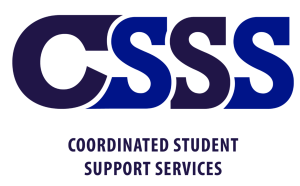Project AWARE
The Nebraska Department of Education is the recipient of two (2) Project AWARE (Advancing Wellness and Resilience in Education) – State Education Agency (SEA) grants from the Substance Abuse and Mental Health Services Administration (SAMHSA). The first grant was awarded in 2018 and the second in 2021.
The purpose of this five year grant is to build or expand the capacity of State Educational Agencies, in partnership with State Mental Health Agencies (SMHAs) overseeing school-aged youth and with three local education agencies (LEAS), to: (1) increase awareness of mental health issues among school-aged youth; (2) provide training for school personnel and other adults who interact with school-aged youth to detect and respond to mental health issues; and (3) connect school-aged youth, who may have behavioral health issues (including serious emotional disturbance [SED] or serious mental illness [SMI]), and their families to needed services.
Nebraska’s AWARE-SEA Project is being jointly undertaken by the Nebraska Department of Education (NDE) and Nebraska Department of Health and Human Services – Division of Behavioral Health (DHHS-DBH) to build and enhance partnerships and collaboration between State and local systems that promote the healthy development of students and prevent youth violence. The project focuses on the high level of mental and behavioral health needs of school-age children in rural schools, including depression, anxiety, suicide ideation, trauma, and substance use.
NDE and DHHS-DBH are partnering at the State level to collaborate with three Local Education Agencies (LEAs) for each grant to improve school-based mental health services.
For the 2018 AWARE grant, participating LEAs are:
- Chadron Public Schools, a frontier school district in a community of 5,725 people in the far northwest region of the state;
- Hastings Public Schools, a micropolitan school district located in a community of 24,991 people in south central Nebraska; and
- South Sioux City Community Schools, a suburban school district of 13,120 people in the far northeast corner of the state.
For the 2021 AWARE grant, participating LEAs are:
- Lexington Public Schools, located in a community of 10.032 in the west central part of the state along the Interstate 80 corridor
- Nebraska City Public Schools, in a southeastern town of 7,289 overlooking the Missouri River bordering Iowa
- Valentine Community Schools, serving a remote ranchland community of 2,737 in north central Nebraska, adjacent to the Pine Ridge and Rosebud Reservations in South Dakota
These LEAs are demographically and geographically diverse, with varying levels of poverty and scarcity of mental health resources. All six LEAs have strong, long-standing track records of successful collaborations with State and local partners, including mental health providers, community coalitions, civic organizations, the business and private sector, and stakeholders, including students and families.




